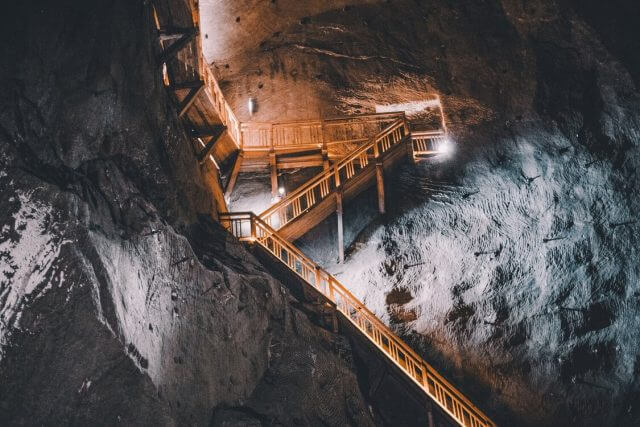Gold is not only beautiful, it’s considered a useful investment in times of economic recession as it can be less volatile than shares. But what is its impact on the planet? Josh Gregory of climate analytics platform Sugi (a Good With Money ‘Good Egg’ company) explores.
Ah, gold… A beautiful metal, with many practical uses, and handy in investment portfolios as a hedge against inflation.
But what does it cost the planet?
The gold mining industry is well known for creating intense, localised environmental problems. These include pollution to rivers and watersheds, and in forest countries, deforestation – both near the mine itself and around the roads that need to be built in remote areas. But what about gold’s impact on climate change?
The story of a piece of gold is fairly standard and well understood: it sits around for billions of years, then it’s dug up, processed, shipped, incorporated into something else (primarily jewellery) and sold.
Gold’s carbon impact
Each of these steps has an associated carbon emission, and whilst the initial steps are simple to estimate, the so-called ‘Scope 3’ emissions (everything that happens from shipping onwards) are harder. Carbon impact also varies depending on whether gold is sourced from the middle of the Amazon or from a mine near a major city.
Building on work from industry bodies such as the World Gold Council, it’s estimated that £1,000 worth of gold has, on average, a carbon impact of just over 1.1 tonnes.
To put that into perspective, £1,000 invested in the FTSE 100 (which is significantly weighted towards carbon-intensive industries such as energy and manufacturing) currently has a carbon impact of 1.33 tonnes, £1,000 invested in MSCI World has a carbon impact of 600 kg, and £1,000 invested in the S&P 500 (which is dominated by tech companies) has a carbon impact of 440kg.
So, unless you generally invest in energy companies and mining, gold is not going to be your low-carbon option.
What about physical gold?
However, the picture is more complex.
In the UK and across Europe, the most popular way for everyday investors to include gold within their portfolio is via a ‘physical gold’ ETC (exchange-traded commodity), from providers such as iShares, Invesco and WisdomTree.
Owning an ETC entitles you to a specific bar of gold in a vault somewhere, which means the 1.1 tonne/£1,000 metric is appropriate.
But there’s an important point. For equities and debt, we measure and track carbon emissions on an annual basis, corresponding to the ongoing activities of the underlying company.
Commodities such as gold, however, are more akin to products, with a single carbon ‘lifecycle’. So physical gold’s footprint, at least for investment purposes, is a ‘one-off’.

Shares of gold mining companies
A second point to highlight. For those looking for deeper exposure to gold, it’s possible to invest in the shares of gold mining companies. The carbon footprint of these shares vary and can be substantially higher than 1.1 tonne per £1,000.
Finally, there are even more indirect strategies for investing in gold, such as via an exchange-traded product (ETP). An ETP contains a complex package of derivatives. Rather than owning a bar of gold or a share in a gold mining company, these allow you to, in effect, bet on the overall price of gold.
What can we say about the carbon impact of these ETPs? Although the topic is complicated and subject to extensive debate, it’s our view that they have no carbon impact at all. There’s no product changing hands or security, just a bet between two participants in the financial markets.
While this may seem a bit odd, it’s why much activity in the world of finance has – beyond the cost of logging transactions, running servers etc – little impact on the climate.
So, investing in commodities such as gold is different from shares and bonds, and the climate calculations are, as we’ve briefly shown, different too.
At Sugi we’ve recently expanded our coverage to the major gold ETCs, so head on over to our app if they’re part of your portfolio, and see for yourself.



